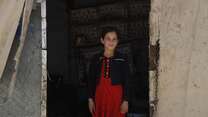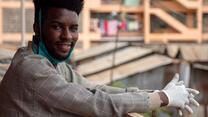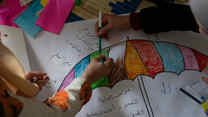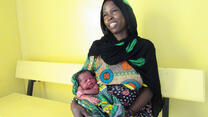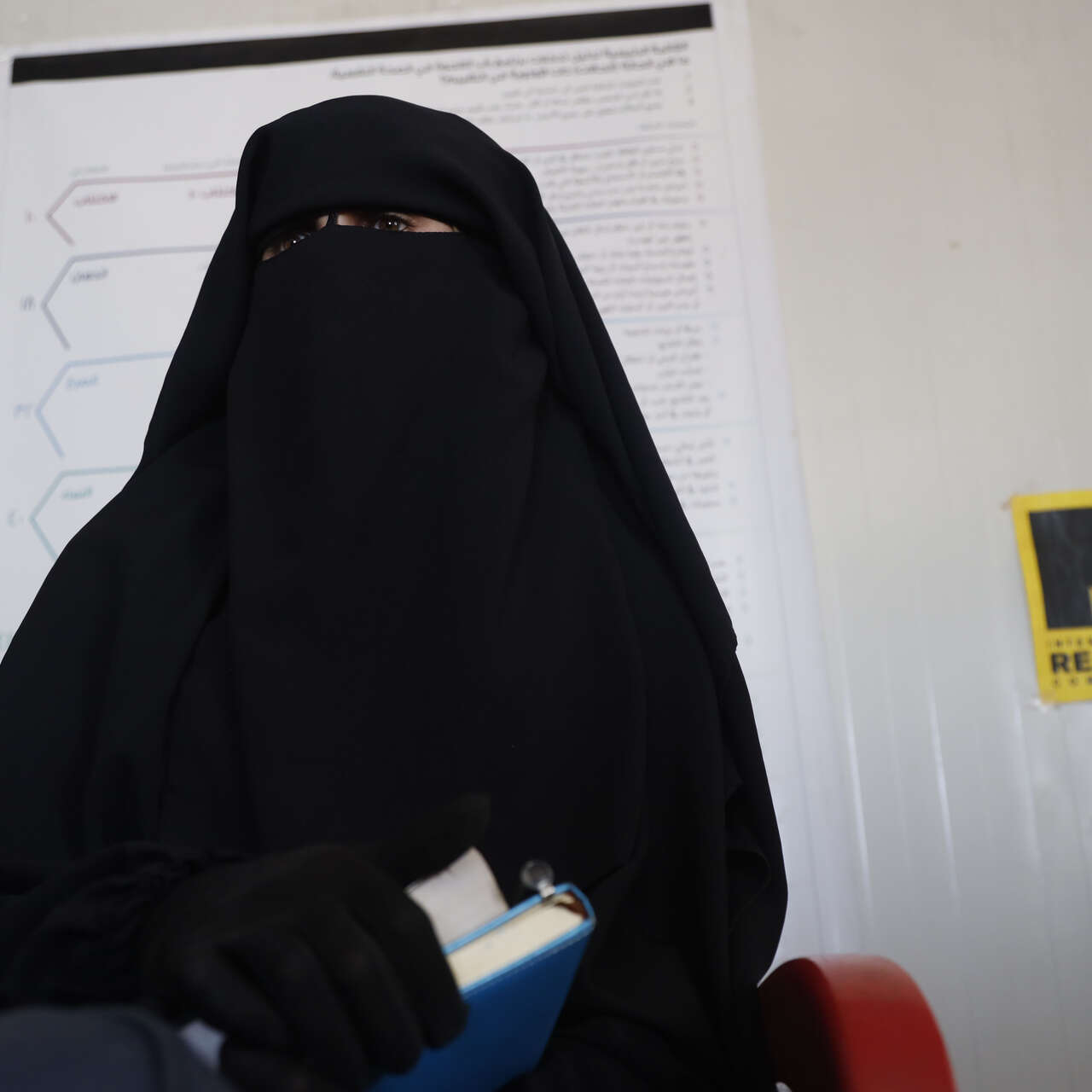
“The camp conditions are difficult, alongside the responsibilities of motherhood,” 23-year old Ebtisam* explains. “Carrying the responsibility of a family while I'm still young is very challenging. When I got married, I was 15 years old.”
The war in Syria is now in its fourteenth year with no signs of respite, which is only worsening the camp environment.
With more than 41,000 residents, conditions in the camp where Ebtisam lives are burdensome. Ebtisam describes her situation to us: “There's a trench that was dug, I don't know the reason behind it. Many children have fallen into it, which makes us worried and anxious that our children might disappear from our sight and we're afraid they might fall into it.”
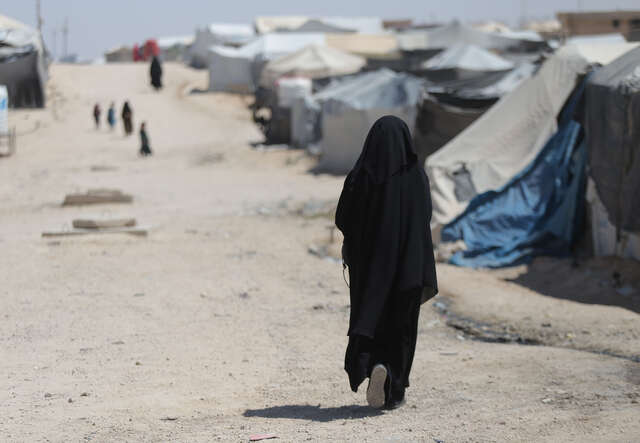
Ebtisam and her children live in a tent, which is neither strong enough to protect them from the harsh weather, nor secure enough to keep outsiders out. “We feel worried and tense. Most of the psychological pressures we experience are due to living in the camp and the challenges of the hot weather, as well as rain in the winter.”
Rania*, a psychological specialist at The International Rescue Committee’s (IRC) Health Care Center supported through funding from the European Union (EU) at the camp, has given counseling services to countless people coming from various backgrounds of war and trauma, who must face the harsh conditions of the camp. “Today, we have a very deep wound in the camp, regardless of the background of the residents present,” she explains what she has learned in her two years of experience working with the inhabitants.
“These cases are complex,” she says, “and the general environment in the camp doesn't support security, economic stability or adequate education.”
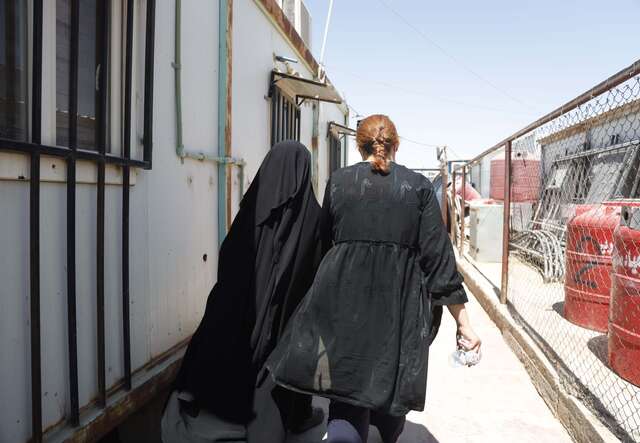
Rania has worked resolutely to tackle the complicated mental health concerns faced by residents. These issues range from depression and anxiety, to more severe conditions like schizophrenia and epilepsy. “There are many difficulties faced by women, especially including extremely limited job opportunities. The vast majority of their husbands are either imprisoned, missing or deceased.”
Ebtisam is now the sole provider for her family. This has proven to be extremely strenuous on her mental health. However, she has persevered through these challenges and become resilient with help from the services supported by the EU.
“Previously, I used to wish to die,” she says. “Thanks to the efforts of Ms. Rania and the psychiatrist, thank God, my condition improved. I became more sociable, I read books. I feel like Ms. Rania has shed light on the darkness. Medication prescribed by the doctor and Ms. Rania has greatly contributed. I cannot repay her kindness. We did many activities together, as well as breathing exercises and relaxation exercises.”

Forced into marriage at such a young age, Ebtisam has come to realize the terrible toll this takes on girls. Through counseling and reading self-help books she has gained understanding of her right to make her own decisions and take control of her life.
“If the decision was in my hands, or if the circumstances were under my control, I wouldn't have gotten married at the age of 15,” she says, “But I respect myself now and feel an inner spirit within me, like a friend I love greatly, more than anything. And I didn't consider this existing before.”
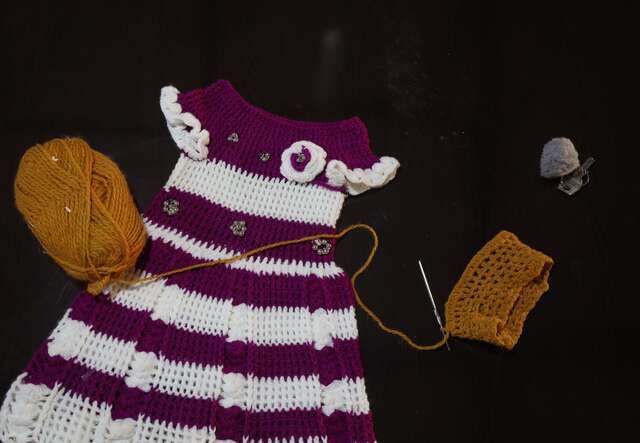
Through protection activities, such as knitting and weaving, organized by IRC employees, Ebtisam has discovered her passion for craftwork. She was presented as an example of success for handicrafts at an exhibition in the camp. “I knitted almost more than 5 dresses for the exhibition, and I knitted a large number of bracelets. I also made flower vases and roses.”
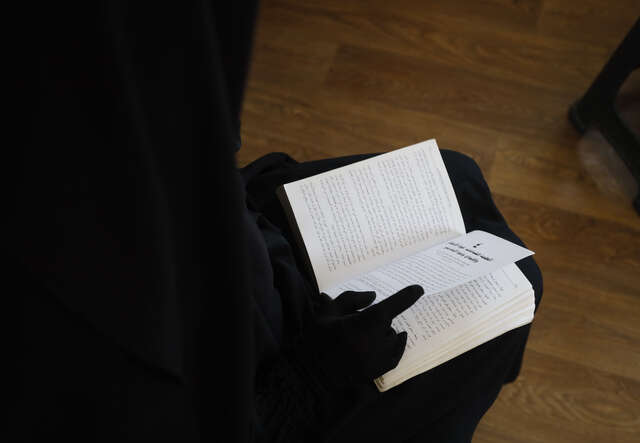
Ebtisam has advice for the world from what she has learned; “Don’t marry your daughters when they are young. And don’t deprive them of education, because education improves their mental state, and enhances their social relationships.”
The International Rescue Committee partners with the European Union to provide life-saving support to people caught in conflict and disasters around the world. Our work funded by the EU enables people to survive, recover and rebuild their lives.

